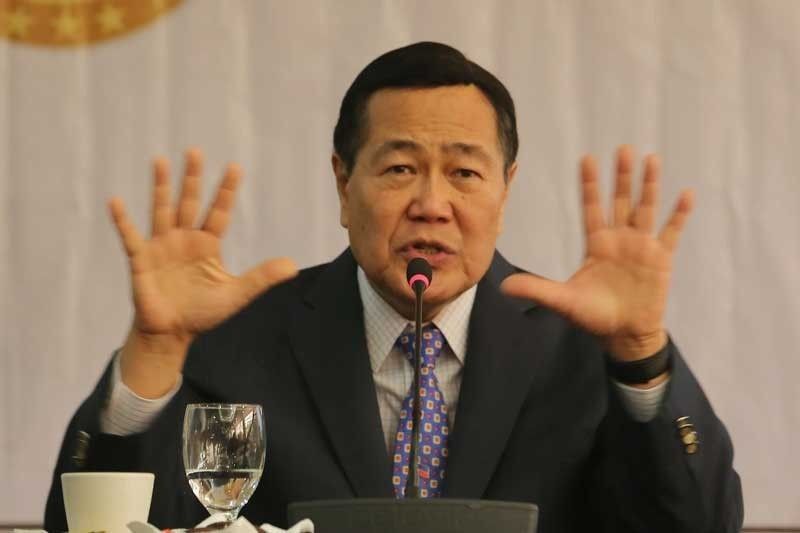‘Setting aside SCS ruling as good as abandonment’

MANILA, Philippines — “Setting aside” the 2016 arbitral court ruling on the South China Sea is as good as abandoning it, Supreme Court (SC) Senior Associate Justice Antonio Carpio said yesterday.
Justice Carpio issued the statement in reaction to Malacañang’s assertion that President Duterte was merely setting aside and not abandoning the ruling issued by the Permanent Court of Arbitration based in The Hague.
In its ruling, the UN-backed arbitral court invalidated Beijing’s massive claim in the South China Sea and reaffirmed the Philippines’ own maritime entitlements.
At a press briefing earlier this week, Duterte said Chinese President Xi Jinping would agree to a 60-40 sharing scheme in the proposed joint oil and gas exploration right within the country’s exclusive economic zone if the Philippines would “set aside” the arbitral ruling.
But Carpio emphasized Duterte has no authority to “set aside” the landmark ruling.
“In law, to ‘set aside’ a ruling is to abandon, overrule, reverse or annul the ruling. In this legal sense, the President under Philippine law has no authority to ‘set aside’ the arbitral ruling issued by The Hague tribunal,” Carpio said.
A unilateral declaration by the President that he was “setting aside” the arbitral ruling, he said, could bind the Philippines under international law under the doctrine of unilateral declarations.
The magistrate believed that the more appropriate term should have been “put aside” the arbitral ruling.
“However, as chief architect of the state’s foreign policy, the President exercises the prerogative when to assert the arbitral ruling, without setting aside the ruling. Thus, the President can temporarily ‘put aside’ the ruling and assert it at an appropriate future time,” the SC justice said.
“Of course, whenever China commits acts that infringe on our sovereign rights under the arbitral ruling, the Philippines must officially and promptly protest such infringement to avoid acquiescing or impliedly consenting to such infringement,” he said.
“Any acquiescence or implied consent can result in the loss of our sovereign rights under the arbitral ruling. The Duterte administration, and the Filipino people, must always be vigilant to avoid such acquiescence or implied consent,” he added.
Finding fault
At Malacañang, presidential spokesman Salvador Panelo said Carpio “appears to relish in finding fault in what the President says even if there is none.”
“We recall, however, that it was Justice Carpio himself who said that he has no objections if we pursue a joint exploration with China in the West Philippine Sea, stating that ‘the proposal of 60–40 in our favor would be a good start.” Panelo also quoted Carpio as having admitted that “despite everything, (Duterte) might be the President who will find the solution to the South China Sea dispute.’” – With Christina Mendez
- Latest
- Trending

































